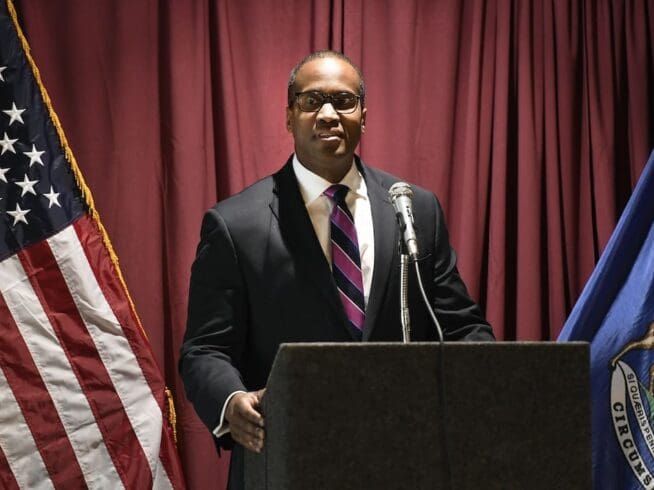Most Americans don’t support lawmakers’ involvement in medical decisions for trans youth
A new survey from Data For Progress shows even most Republicans agree state legislators should not have the final say in transgender minors’ access to gender-affirming care.

The poll, conducted by Data For Progress, sampled 1,209 U.S. likely voters between Nov. 9-11.
It shows 54% of likely voters think a minor’s parents should make the final decision on what gender-affirming health care their child can receive. Another 22% say a child’s doctor should make the decision. Just 12% answered that the state lawmakers where a minor lives should make the decision, and 13% said they weren’t sure.
Majorities of all political affiliations agreed parents should make the final decision, with 51% of Democrats, 52% of independents and 59% of Republicans answering that way.
According to the Human Rights Campaign, 22 states have laws in place restricting minors’ access to gender-affirming care, although access to care still continues in four of those states — Alabama, Arkansas, Florida and Indiana — due to court injunctions.
The poll also asked voters what groups they trust most to develop policies and regulations on trans’ minors access to gender-affirming care: medical and mental health associations or state lawmakers.
A slight majority, 52% answered “medical and mental health associations,” while 7% answered “lawmakers” and 34% said “neither.”
No political affiliation showed a majority in favor of letting lawmakers develop regulations for access to gender-affirming care; just 7% of Democrats, 3% of independents and 9% of Republicans answered that way. Meanwhile, 16% of Democrats, 38% of independents and 51% of Republicans answered “neither.”
The same poll also showed 55% of those surveyed believe “state lawmakers should not be allowed to implement full bans on abortion and gender-affirming medical care, and place criminal penalties on physicians who provide this care.” Thirty-four percent answered the opposite.
As of Nov. 16, there were a total of 135 bills targeting access to health care for transgender people in state capitol buildings across the country, according to the American Civil Liberties Union. Twenty-one states also have abortion bans in place that go beyond the standard set by Roe v. Wade, with 14 of those being total abortion bans, according to The New York Times.
Another poll from earlier this year showed 64% of likely U.S. voters believed there is “too much legislation” targeting LGBTQ+ people and agreed with the statement “Politicians are playing political theater and using these bills as a wedge issue.”




